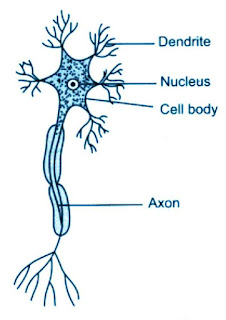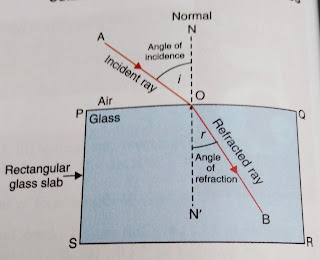CBSE: Acids, Bases and Salts// NCERT Class 10 - Acids
Acids, Bases and Salts: On basis of chemical properties compound are divided into three groups i) acids ii) bases and iii) salts.
Here we discussed about Acids.
What is Acid?
An acid is a chemical substance which when dissolved in water yields hydrogen ions (or hydronium ions) as the only positively charged ions.
Example: hydrochloric acid, sulphuric acid, nitric acid etc.
Acid is sour in tast and change blue litmus red.
On basis of sources acid can divided into organic acid and inorganice acid.
Organic Acid: The acids which we get from plants and animals are called organic acid. Such as citric acid, malic acid, acetic acid etc.
Inorganic Acid: The acid which we get from minerals are called inorganic acids.Such as hydrochloric acid, nitric acid, sulphuric acid.
On basis of strength acids are also divided into strong acid and weak acid.
Strong Acid: The acid which is dissociate completely in aqueous solution and produce high concentration of hydrogen ions called strong acid. Such as hydorchloric, sulphuric, nitric acids.
Weak Acids: The acid which is dissociate in aqueous solution partially and produce less concentration of hydrogen ions is called weak acids. Such as carbonic acid, acetic acid.
On basis of concentration acids again devided into concentrated acid , diluted acid.
Concentrated Acid: The acid which contain minimum amount of water in it is called concentrated acid.
Dilute Acid: The acid which contain much more amount of water is called dilute acid.
Question: How to dilute a concentrated acid ?
To dilute a concentrated acid, we should add acid to water dropwise with contineous starring the solution. We should never add water to acid because add water to acid is exothermic process which cause produce large amount of heat and can cause splashing of acid and cause accident.
Properties of Acids:
i) have sour taste
ii) turn blue litmus red
iii) behave as electrolyte
iv) reacts with metals from hydrogen gas
v) reacts with carbonates and bicorbonates froms carbon dioxide as well as salts and water.
vi) Acids reacts with bases forms salts and water. It is called neutralisation reaction.
vii) Acids reacts with metal oxide and from salts and water.
The common thing of all acids that they produce hydrogen ions when dissolves in water.
Question: hydrochloric acid behave as acid but glucose does not behave as acid ---why?
Answer: Because hydrochloric acid forms hydrogen ions in aqueous solution. But glucose does not form any hydrogen ions so it does not an acid.
Acids are shows acidic behaviour in presence of water but in absence of water they do not show acidic property.
More Related Search For You
Here we discussed about Acids.
What is Acid?
An acid is a chemical substance which when dissolved in water yields hydrogen ions (or hydronium ions) as the only positively charged ions.
Example: hydrochloric acid, sulphuric acid, nitric acid etc.
Acid is sour in tast and change blue litmus red.
On basis of sources acid can divided into organic acid and inorganice acid.
Organic Acid: The acids which we get from plants and animals are called organic acid. Such as citric acid, malic acid, acetic acid etc.
Inorganic Acid: The acid which we get from minerals are called inorganic acids.Such as hydrochloric acid, nitric acid, sulphuric acid.
On basis of strength acids are also divided into strong acid and weak acid.
Strong Acid: The acid which is dissociate completely in aqueous solution and produce high concentration of hydrogen ions called strong acid. Such as hydorchloric, sulphuric, nitric acids.
Weak Acids: The acid which is dissociate in aqueous solution partially and produce less concentration of hydrogen ions is called weak acids. Such as carbonic acid, acetic acid.
On basis of concentration acids again devided into concentrated acid , diluted acid.
Concentrated Acid: The acid which contain minimum amount of water in it is called concentrated acid.
Dilute Acid: The acid which contain much more amount of water is called dilute acid.
Question: How to dilute a concentrated acid ?
To dilute a concentrated acid, we should add acid to water dropwise with contineous starring the solution. We should never add water to acid because add water to acid is exothermic process which cause produce large amount of heat and can cause splashing of acid and cause accident.
Properties of Acids:
i) have sour taste
ii) turn blue litmus red
iii) behave as electrolyte
iv) reacts with metals from hydrogen gas
v) reacts with carbonates and bicorbonates froms carbon dioxide as well as salts and water.
vi) Acids reacts with bases forms salts and water. It is called neutralisation reaction.
vii) Acids reacts with metal oxide and from salts and water.
The common thing of all acids that they produce hydrogen ions when dissolves in water.
Question: hydrochloric acid behave as acid but glucose does not behave as acid ---why?
Answer: Because hydrochloric acid forms hydrogen ions in aqueous solution. But glucose does not form any hydrogen ions so it does not an acid.
Acids are shows acidic behaviour in presence of water but in absence of water they do not show acidic property.

